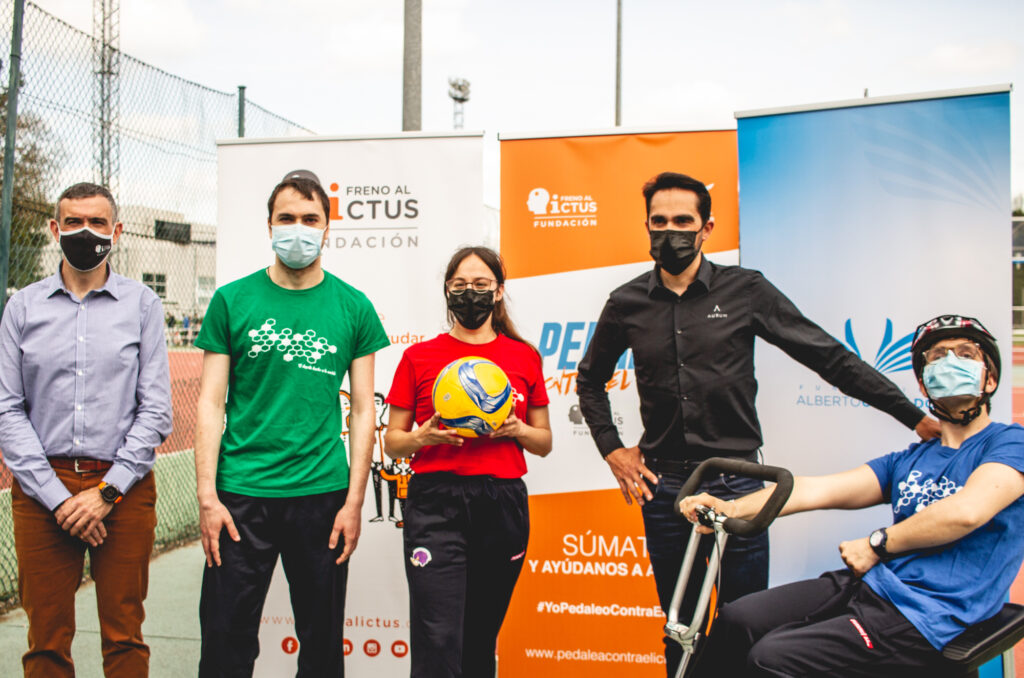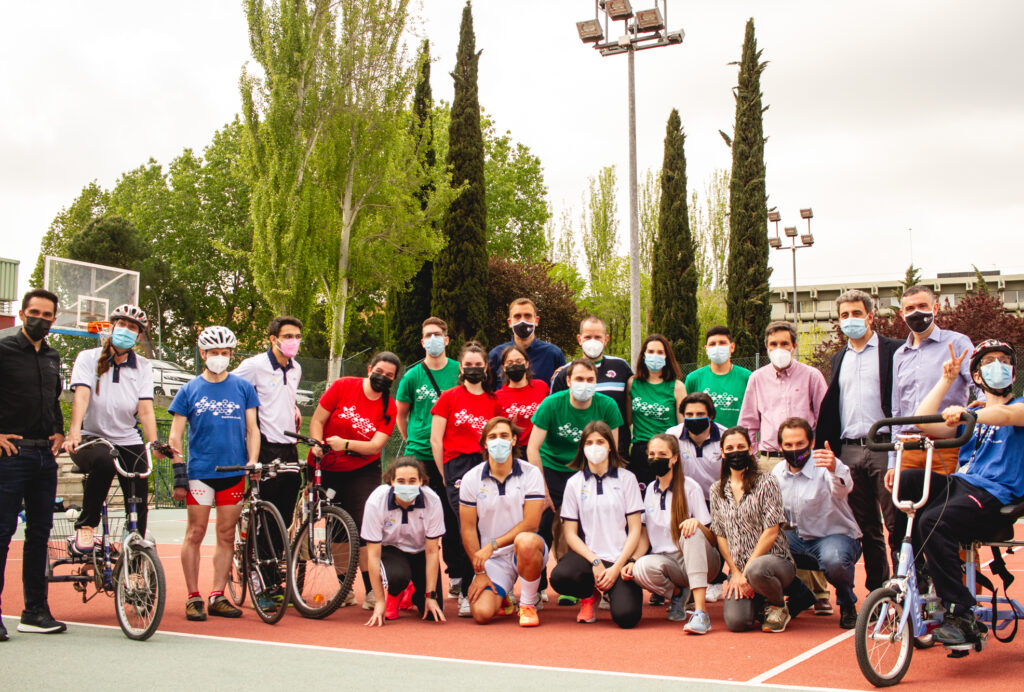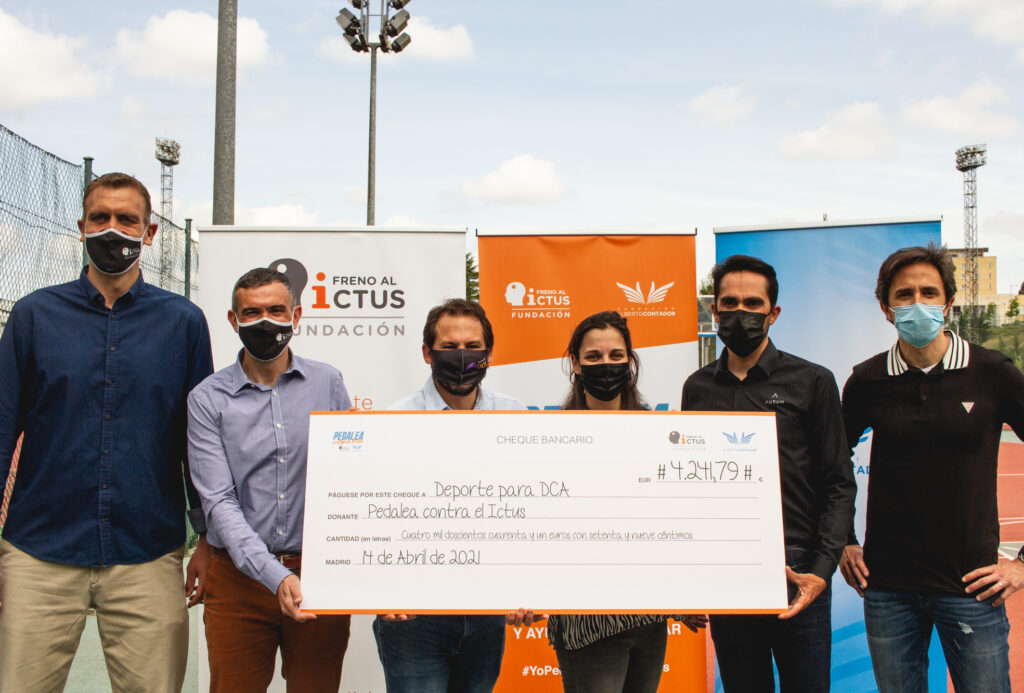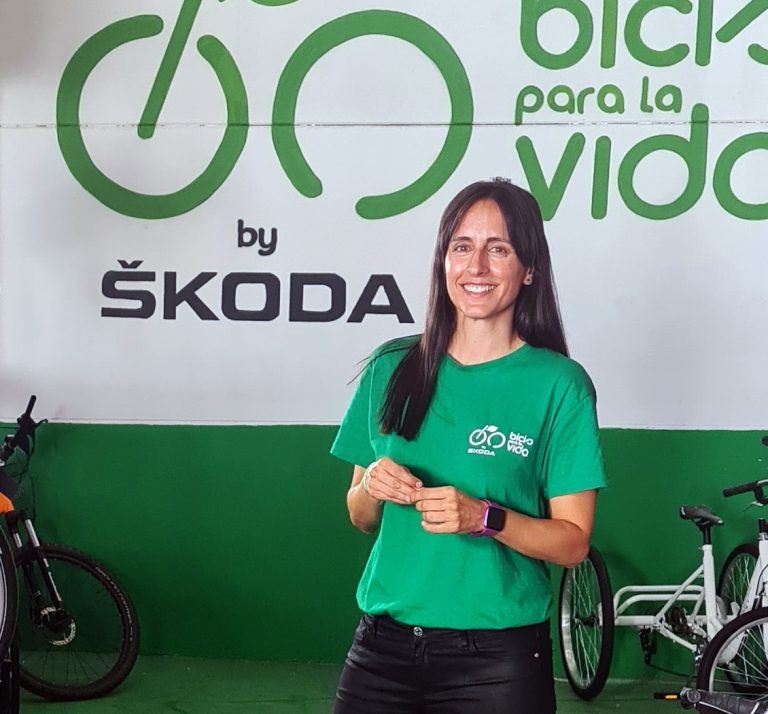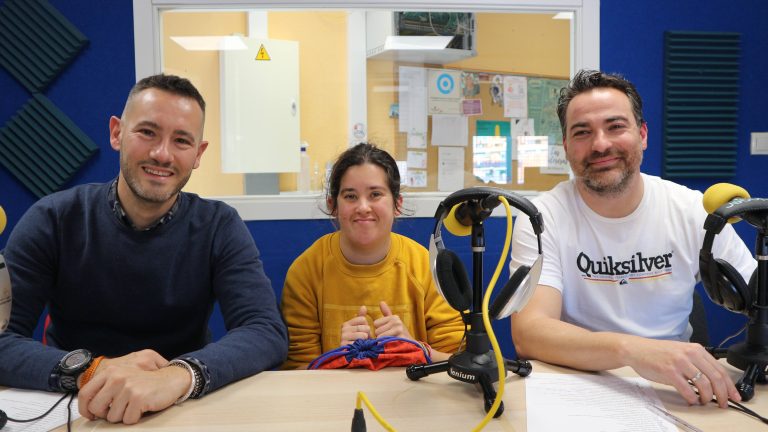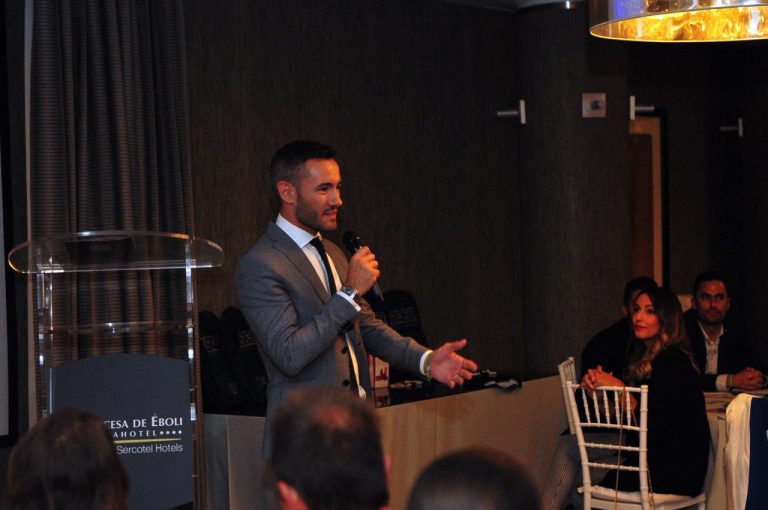The Fundación Freno al Ictus and the Fundación Alberto Contador collect 4.241,79 euros to Deporte para DCA thanks to ‘Pedalea contra el ictus’
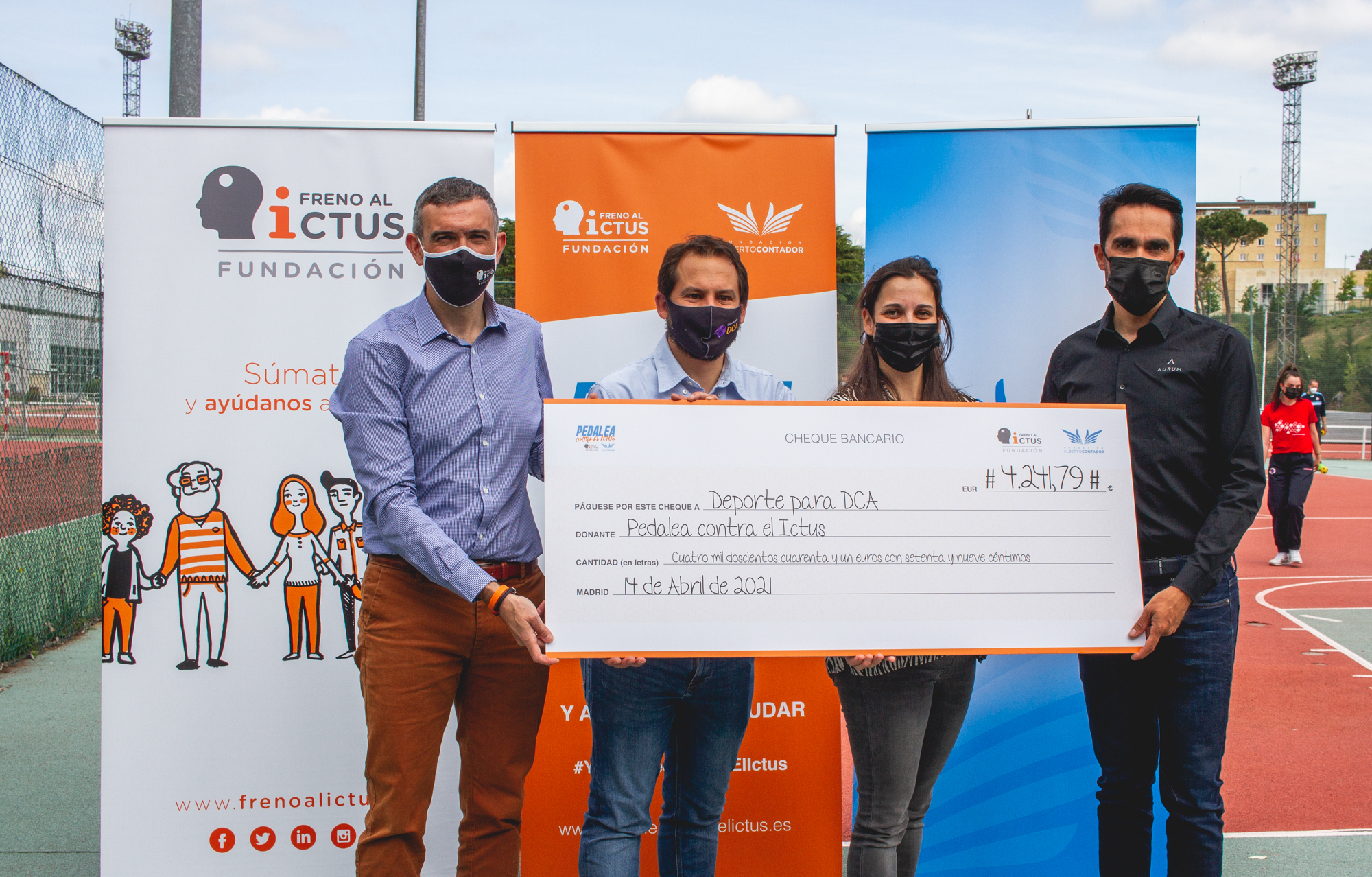
The Fundación Freno al Ictus and the Fundación Alberto Contador have donated to Deporte para DCA, a total of 4.241,79 euros, amount that comes from the first edition of the solidarity action ‘Pedalea contra el ictus’ that both institutions organised with the help of RPM-MKTG in the 2020 edition in virtual format and that counted with the massive participation of the general public and great personalities of the Spanish sport world.
Both foundations in their ongoing commitment to society, and in their fight against stroke, promoted this initiative, whose primary objective is to improve the situation of stroke in Spain, raising awareness of the disease among the population and serving as a vehicle for raising funds to be allocated to projects for the inclusion of those affected in day-to-day life.
The beneficiary project is committed to physical activity as a tool for the inclusion of patients with different degrees of affectation, through sports with official active competition, such as swimming, athletics, women’s football, boccia and soon adapted cycling. Likewise, Sport for ACD is also committed to Paralympic sport for young people with acquired brain damage.
The cheque presentation ceremony took place in Madrid at the Faculty of Physical Activity and Sport Sciences (INEF), in the facilities of the Consejo Superior de Deportes (CSD) and thanks to the Chair of Studies on Inclusive Sport (CEDI) of the same faculty, and was attended by Alberto Contador, president of the Fundación Alberto Contador; Julio Agredano, president of the Fundación Freno al Ictus; Juanjo García, coordinator of Deporte para DCA; Marta Pérez, Technical Director of Deporte para DCA; Vicente Gómez, dean of the INEF and Javier Pérez, director of the CEDI.
During the ceremony, Deporte para DCA explained what the project consists of, carrying out different sports activities with a group of people affected and users of the activities, making visible the benefits that this donation will have among this group of people affected by brain damage. Likewise, INEF students specialised in sport, disability and inclusion participated directly in the organisation and development of cycling, athletics and football activities carried out by the participating users.
These activities consisted in putting into action the Deporte para DCA working method through which more than 150 people with acquired brain damage carry out physical activity on a weekly basis. In the words of Marta Pérez: “This project aims to respond to an ambitious and growing group such as young people with brain damage who see sport as an opportunity for personal and even professional development. We are always working to include the greatest number of people with ABI of different functional capacities and, in this sense, the support of the Fundación Alberto Contador and the Fundación Freno al Ictus will allow our youngest athletes to develop their full potential. That is why we are immensely grateful that these organisations have supported the project we are carrying out through Pedalea contra el ictus”.
In this sense, Alberto Contador points out: “2020 was a really difficult year for all areas of life. The pandemic and the restrictions it brought with it prevented our original project for pedal against stroke from being carried out in the way we would have liked. But we had to adapt, and so we also adapted for Pedalea contra el ictus, albeit virtually, and it was very satisfying to see how the response from people was still absolutely wonderful. In the end the merit is theirs, their commitment, their solidarity. And thanks to each and every one of the participants in this first edition we are able to give this amount to an institution like Deporte para DCA that has been working so hard and so well since 2011. Deporte para DCA is much more than just a sports club. It is a reference in the promotion of physical-sports activities for people with some kind of neurological injury and both from Freno al Ictus and from the Fundación Contador we believe that they are excellent recipients of this amount”.
For his part, Julio Agredano, president of the Fundación Freno al Ictus, said: “Pedalea contra el ictus has two main objectives: to raise awareness of the disease in society through a widely publicised event, and on the other hand, to raise funds to allocate them to finalist projects that help to improve and reduce the impact of stroke in our society. Both objectives were achieved in the 2020 edition, and we are already working on the 2021 edition to make Pedalea contra el ictus a recurring event over the years”.
According to data from the Spanish Society of Neurology, stroke is a cerebrovascular disease that affects 120,000 people every year in Spain, is the leading cause of death in women in our country, the world’s leading cause of acquired disability in adults and is the second leading cause of dementia after Alzheimer’s disease. In addition, currently more than 50% of those affected by stroke do not recover satisfactorily. However, it is a highly preventable and treatable disease, with 90% of strokes being preventable by modifying our lifestyle habits linked to personal health promotion. Furthermore, it is a pathology in which reaction time is fundamental for the correct evolution and treatment of the sequelae it causes.
Pedalea contra el ictus has the endorsement and recognition of social interest of the Fundación Freno al Ictus and the Spanish Society of Neurology, with Alberto Contador as an exceptional sponsor, who through the Foundation that bears his name is at the forefront of the fight against the disease. Pedalea contra el ictus is a social movement, a popular march where families are invited to participate and join the fight against the disease. This first edition was held in a virtual format due to the health emergency caused by the Covid-19 pandemic and had the experience of RPM-MKTG as official organiser.
Deporte para DCA is an organisation that works to improve the physical and cognitive capacities of people affected by brain damage, using the socialising character of sport. Its main objectives are to improve the functional capacity to perform activities of daily living, to achieve maximum personal autonomy, to promote self-improvement every day with new challenges, and to develop motor skills and cognitive functions through physical activity.


